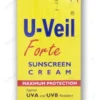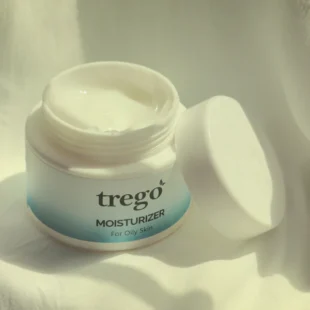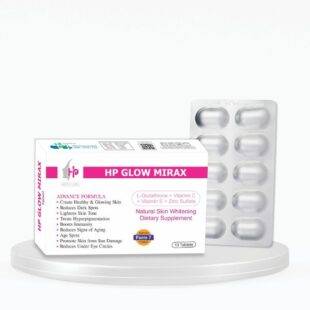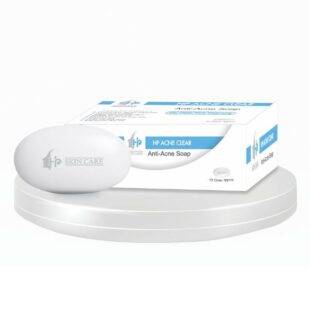- Your cart is empty
- Continue Shopping

Anti Pigmentation Skin Serum
₨1,150.00 Original price was: ₨1,150.00.₨900.00Current price is: ₨900.00.
pigmentation serum
pigmentation serum for face
Anti Pigmentation Skin Serum are skincare products designed to address hyperpigmentation, which includes dark spots, melasma, sun spots, or uneven skin tone. These serums typically contain active ingredients that help lighten pigmented areas, reduce melanin production, and promote an even complexion. Here’s a guide to some of the common ingredients found in effective anti-pigmentation serums:
Key Ingredients in Anti-Pigmentation Serums:
- Vitamin C (Ascorbic Acid): A potent antioxidant that brightens skin and reduces the appearance of dark spots by inhibiting melanin production.
- Niacinamide (Vitamin B3): Known for its anti-inflammatory properties, it helps reduce hyperpigmentation and improves skin texture.
- Kojic Acid: A natural skin-lightening agent that works by inhibiting the formation of tyrosine, an amino acid involved in melanin production.
- Alpha Arbutin: A gentle yet effective lightening agent that works to fade dark spots and even out skin tone.
- Azelaic Acid: Reduces inflammation and targets hyperpigmentation, making it ideal for acne-prone skin.
- Glycolic Acid: An exfoliating alpha hydroxy acid (AHA) that helps in skin cell turnover, reducing the appearance of dark spots and improving skin texture.
- Licorice Extract: A natural brightening agent that helps diminish dark spots and provides anti-inflammatory benefits.
- Tranexamic Acid: A newer ingredient in skincare, it works to reduce pigmentation and is often recommended for melasma.
- Retinoids (Vitamin A derivatives): Promote skin renewal, helping to fade dark spots over time. Retinol is a popular choice, though it can be harsh for sensitive skin.
- Hydroquinone: A powerful skin-lightening agent that is often used in prescription products to treat severe hyperpigmentation, though it should be used with caution due to potential side effects.
How to Use Anti-Pigmentation Serums:
- Patch Test First: Before applying any new serum to your face, do a patch test on your wrist or behind your ear to check for any allergic reactions.
- Consistency is Key: Most pigmentation issues take time to fade. Use the serum consistently as part of your daily skincare routine.
- Use Sunscreen: Since many of these serums contain ingredients that increase skin sensitivity to the sun, wearing a broad-spectrum SPF is essential to prevent further pigmentation and protect your skin.
Recommended Anti-Pigmentation Serums:
- SkinCeuticals C E Ferulic: Contains Vitamin C and other antioxidants that help with pigmentation.
- The Ordinary Alpha Arbutin 2% + HA: A budget-friendly serum with alpha arbutin to target hyperpigmentation.
- Murad Rapid Age Spot and Pigment Lightening Serum: Contains hydroquinone for stubborn pigmentation.
- Paula’s Choice Resist Triple-Action Dark Spot Eraser: Features niacinamide and a blend of other actives for fading dark spots.
Choosing the right serum depends on your skin type and the severity of your pigmentation.
Additional Tips for Using Anti-Pigmentation Serums:
- Start Slowly: If you’re new to active ingredients like Vitamin C, retinoids, or acids, introduce the product gradually to avoid irritation. You might want to begin by applying the serum every other day, especially if it contains strong exfoliants like glycolic acid or retinoids.
- Layering: If you are using other skincare products, make sure you apply your anti-pigmentation serum correctly in your routine:
- Cleanse first to remove any dirt or makeup.
- Apply the serum after toning (if you use a toner) and before heavier creams or oils. Serums usually go on before moisturizers because they are lighter and designed to penetrate deeper into the skin.
- If you’re using multiple serums, start with water-based formulas first, followed by oil-based ones. For example, if you’re using a Vitamin C serum and a retinoid, apply Vitamin C in the morning and retinoid at night.
- Hydrate and Moisturize: Some pigmentation treatments can be drying or irritating. Always follow your serum with a good moisturizer that suits your skin type to keep your skin hydrated and prevent irritation.
- Exfoliate (but not too much): Regular exfoliation (1-2 times a week) can help remove dead skin cells and enhance the penetration of your anti-pigmentation serum. However, over-exfoliation can irritate the skin and worsen pigmentation, so be gentle.
- Patience is Important: Hyperpigmentation treatments take time to show noticeable results. It may take several weeks to a few months of consistent use to see significant fading of dark spots or discoloration. Don’t get discouraged if results aren’t immediate.
- Avoid Triggers: Pigmentation issues can often be exacerbated by sun exposure, heat, and even hormonal changes. Avoid direct sun exposure and use high SPF sunscreen every day to prevent further pigmentation. Hats, sunglasses, and staying in the shade can also help protect your skin.
DIY and Natural Alternatives:
If you prefer a more natural approach to treating hyperpigmentation, there are some at-home remedies that can help, though they may be less potent than store-bought serums:
- Aloe Vera: Known for its healing properties, aloe vera gel can help lighten dark spots and soothe the skin.
- Turmeric: Contains curcumin, which can reduce melanin production and even out skin tone. It’s often mixed with milk or honey and applied as a face mask.
- Lemon Juice: The citric acid in lemon juice has natural bleaching properties, but it can be irritating to some skin types. Always dilute it with water and apply sunscreen afterward, as lemon can make your skin more sensitive to sunlight.
- Green Tea Extract: Contains antioxidants that can reduce pigmentation. Green tea bags or brewed tea can be used as a topical application to the skin.
Precautions:
- Avoid Harsh Chemicals: While strong ingredients like hydroquinone can be effective, they should be used under medical supervision, as prolonged use can lead to skin irritation or a condition called ochronosis (a bluish-black discoloration).
- Consult a Dermatologist: If you have severe pigmentation concerns, it’s always best to seek advice from a skincare professional or dermatologist who can recommend prescription-strength treatments or procedures like chemical peels, laser therapy, or microdermabrasion.
By incorporating a well-formulated anti-pigmentation serum into your daily routine and maintaining consistent use, you can gradually improve skin tone and reduce the appearance of dark spots. Be sure to complement these serums with good sun protection and proper skincare habits to achieve the best results.








Reviews
There are no reviews yet.